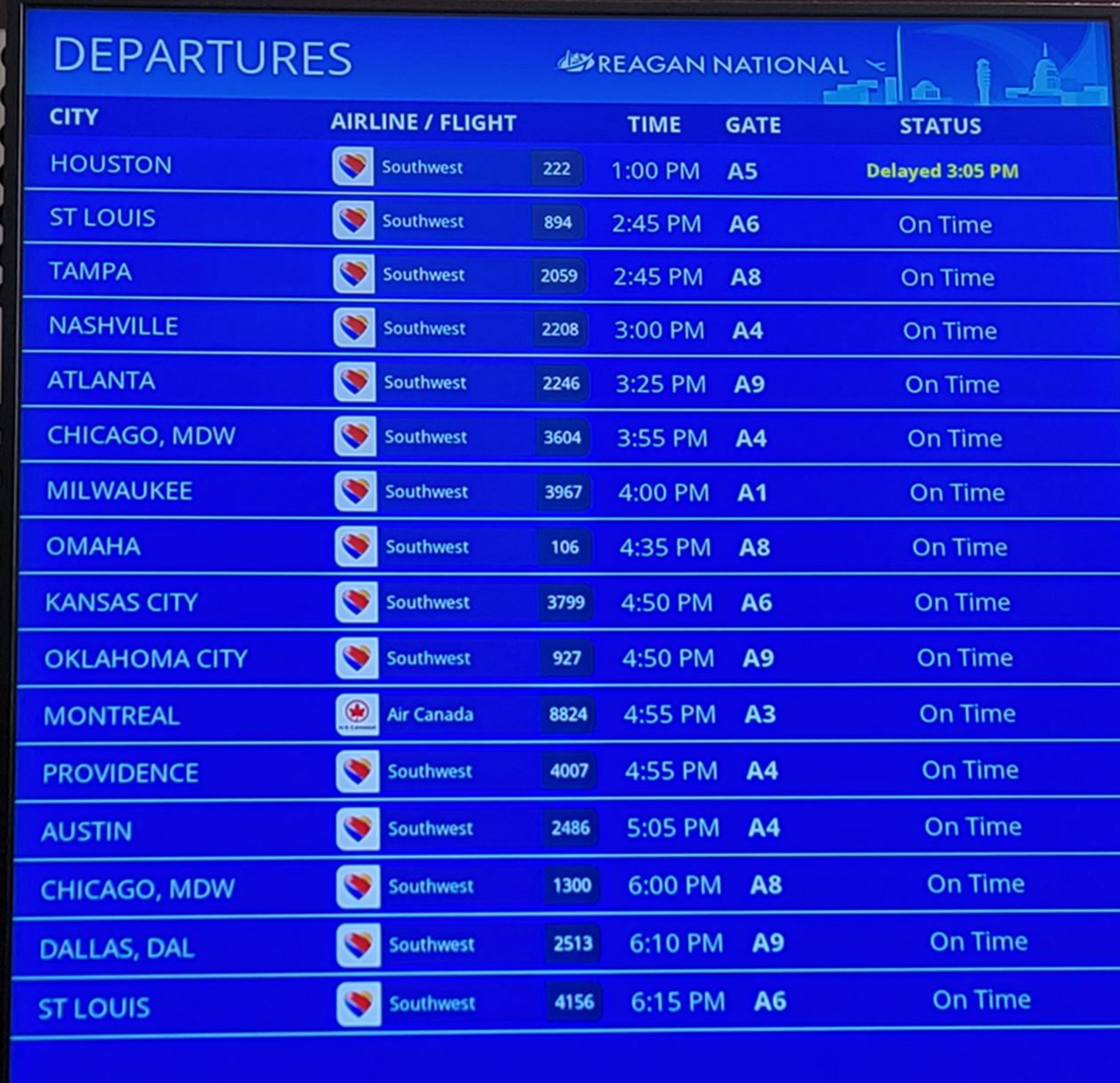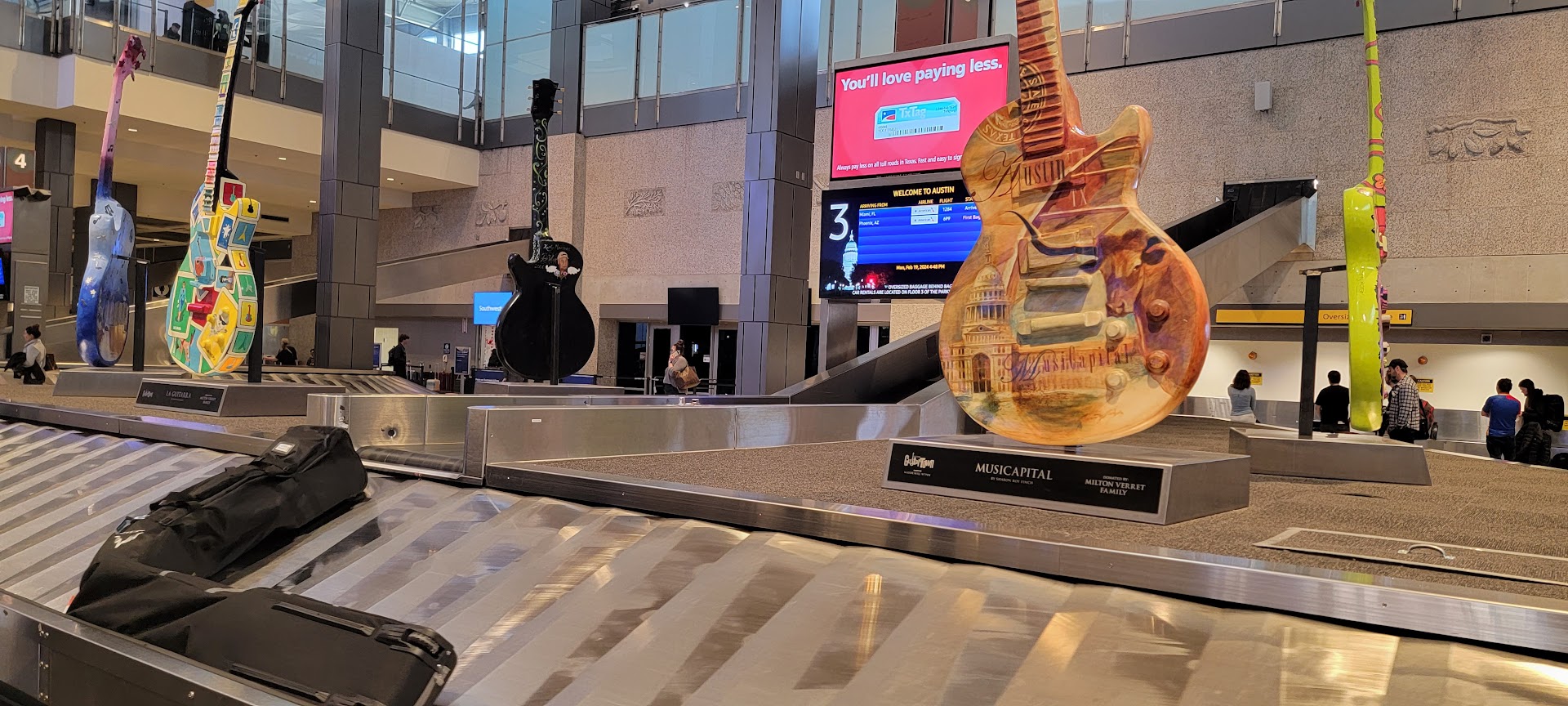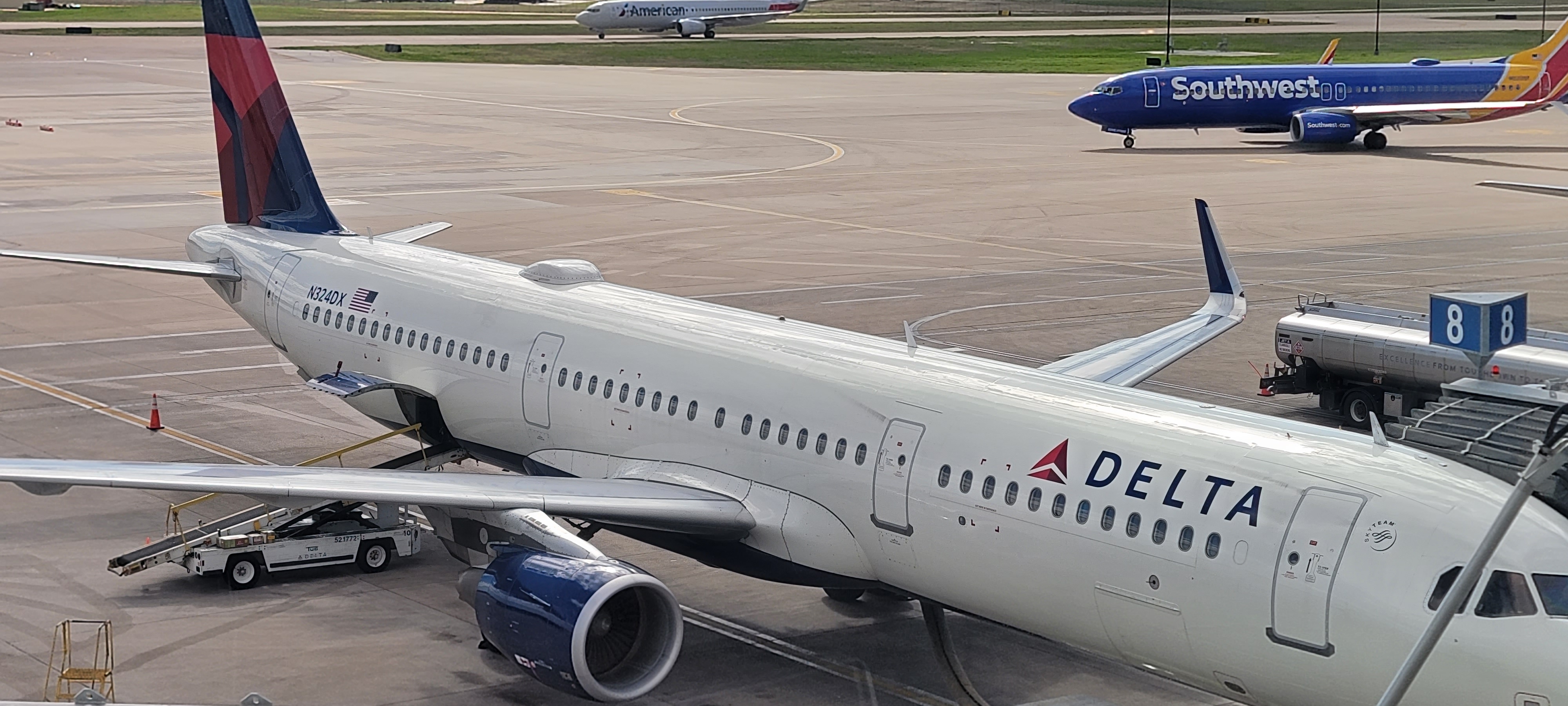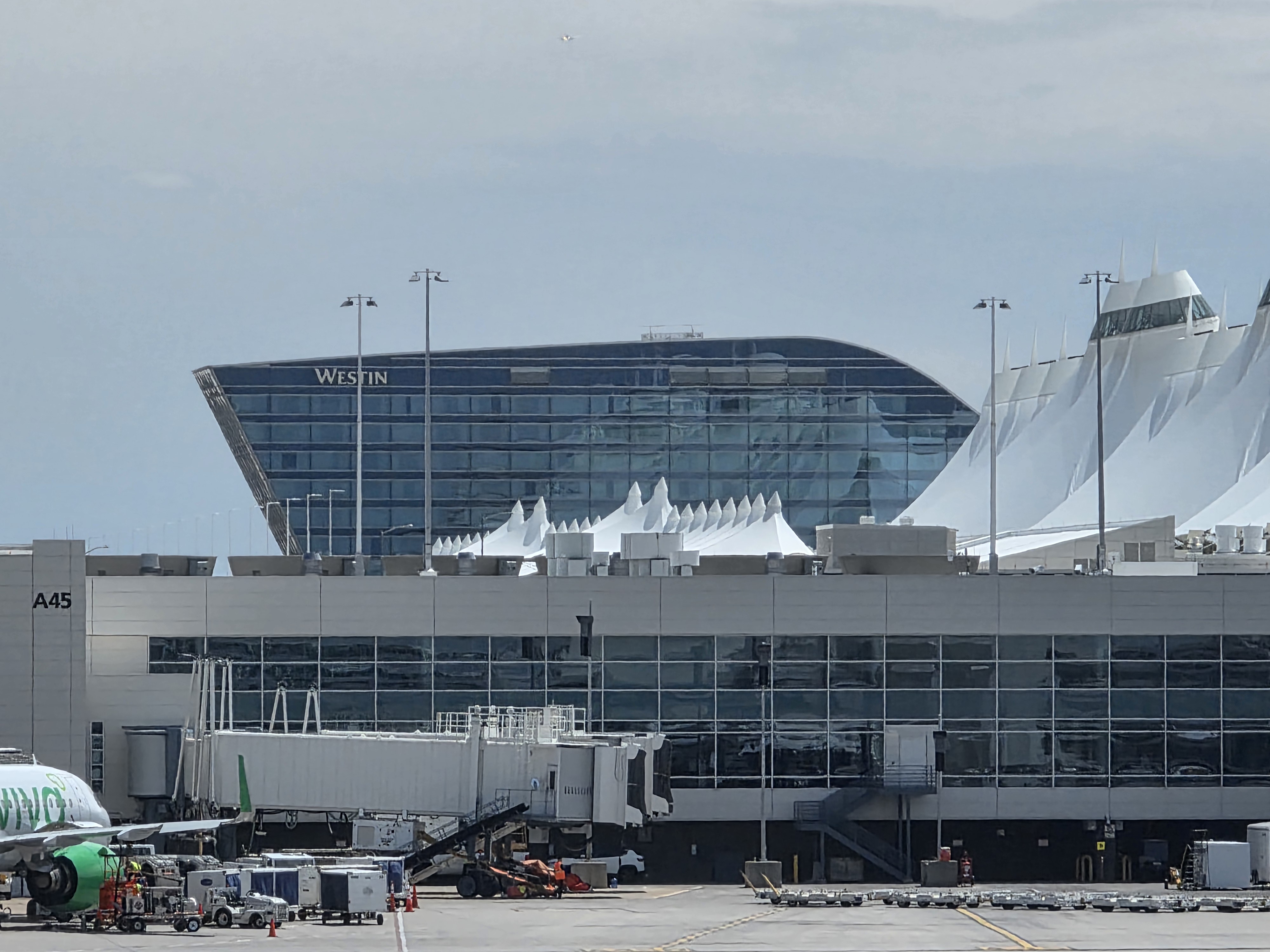After defeats in court over airline passenger rules and attempts to stretch the bounds of their authority, the Department of Transportation is changing tactics. They’re deliberately slowing down rulemaking—aiming to craft tougher, legally durable consumer protections that airlines can’t easily challenge. A new proposed rule explains how.
The Department of Transportation has a broad mandate to (1) ensure safe and efficient air transportation, and (2) regulate ‘unfair and deceptive practices’. When airline regulations are put forward, they generally rely on this mandate.
The Biden administration took the position that ‘unfair and deceptive’ means ‘any practice we don’t like’. For instance,
- They proposed a rule to force airlines to compensate passengers for delays. This isn’t provided for by Congress. They didn’t pass legislation for it, even when they controlled both the Senate and the House. Instead, they sought a regulation which effectively argues not compensating passengers is unfair and deceptive.

- They also finalized a rule to require all sellers of tickets to display prices including fees for baggage, changes, and cancellations upfront at the first instance where itineraries and fares were displayed. The U.S. Court of Appeals for the Fifth Circuit blocked the rule – not saying it went beyond DOT authority, but because the analysis they used to justify the costs and benefits of the rule was highly flawed.

The Trump administration, in 2020, tried to create objective standards for DOT rules.
- It locked in specific legal definitions, along the lines of what the Federal Trade Commission uses.
- “Unfair” – a practice that causes or is likely to cause substantial injury, which consumers can’t reasonably avoid, and which isn’t outweighed by benefits to consumers or competition.
- “Deceptive” – a practice that is likely to mislead a reasonable consumer about something material (important enough to affect their decision).
- Required DOT to use these definitions in all future consumer rules or enforcement cases. This meant they would have to play by fixed, FTC-like rules whenever calling something unfair or deceptive.

For rules that DOT proposed based on their broad authority, rather than mandated by Congress, the 2020 rule created a right to an evidentiary hearing if an interested party asked for one and met a threshold. There only had to be a “plausible” prima facie showing that the rule depended on disputed factual, economic, or technical issues; normal notice-and-comment wouldn’t test those issues well enough; and resolving those facts could change the costs/benefits of the rule.
If granted, DOT had to use a neutral hearing officer (not the rule’s own staff); allow testimony and a chance to question witnesses; have the officer issue proposed findings of fact; and put the whole hearing record into the rulemaking record. This gave airlines and others a relatively easy path to a mini-trial on disputed facts before DOT could finalize new consumer rules it proposed on its own authority.
Once the administration changed, DOT walked away from this approach as too unfriendly to new rulemakings. In 2022 they said that the hearing rules were “overly particularized” and could cause “unnecessary delay” in consumer rulemakings, and that they wanted more “flexibility” so that important consumer protections wouldn’t be “bogged down by overly prescriptive procedural constraints.” In addition, President Biden’s Executive Order 14036 directed DOT to revisit the definitions of “unfair” and “deceptive.”

They ultimately left the 2022 definitionsin place, but issued a detailed guidance document explaining how it interprets those terms in a more expansive, consumer-protective way (what counts as “substantial injury,” how likely “likely to cause” must be, etc.). Asking for a hearing required a “clear and convincing” showing that it would be in the “public interest.” And whereas the 2020 rule required a neutral officer and a chance to question presenters, the 2022 rule let DOT’s General Counsel appoint anyone they wanted. And it eliminated the right to cross-examine or present testimony. This was all labeled an internal procedural rule, skipping the normal notice and comment process.
Returning to the 2020 hearing process, with some adjustments, would mean:
- Airlines can get a hearing on the facts being used to justify a rule, with a neutral officer,
real evidence presentation, and a chance to question others’ experts. That is not a veto over consumer rules. But it constrains the ability of DOT to do whatever it wishes – they’re going to have to demonstrate they have the facts and economics right first. - Consumers will see that new rules take longer, but the ones that do make it through will be better, and less subject to legal challenge. Consumer groups will also be able to petition for hearings if they think DOT is being too industry-friendly.
- DOT will have more up front work, but face less vulnerability in their final rules.

Overall, the Department of Transportaiton is proposing a more court-proof, evidence-heavy structure for discretionary rules after a few years of trying a faster, more legally questionable ones.


Well, let’s get something done, for once, because major corporations are not going to ‘do the right thing’ by consumers on their own. We need a US-261 equivalent, yesterday. It should be bipartisan; Republicans, Democrats and unaffiliated voters all travel and get screwed by airlines. C’mon folks.
At what point does the Civil Aeronautics Board and subsequent route/fare regulation come back?
Your writing is difficult to understand. You miss words, which creates an incomplete sentence and much of what you write is disjointed. Please get someone to review your work before you post it.
And, Gary, let me be clear: I am not pleased with the so-called ‘Autopen’ (psh) or the corporate shills within his party who failed to adequately address this when they had the chance.
Members of both parties should have attached requirements for these new compensation rules along with the massive pandemic-era airline bailouts, which, sadly, those airlines then mostly used for stock-buybacks, while still forcing retirements and not really investing those funds in better things. Sure, that was a boost for executive compensation, Scott, Ed, and Bob all got their $30,000,000 pay those year(s), but the workers and passengers did not get much benefit from that otherwise.
So, if #47 wanted to do some actual good, he’d ignore the airline lobby, and actually get a ‘win’ for the people (with an actual ‘air passenger rights’ legislation including compensation for excessively delayed flight), but, seeing as he’s mostly in this for himself, and that he didn’t do it during his first administration, either, I highly doubt much will happen anytime soon. I’ll keep advocating for it, regardless.
Other than inadequate air traffic control capacity (not coincidentally administered by the government) the US airline industry functions quite well these days. Having been to over 100 countries, flying into most of them, I can assure you the grass is not greener elsewhere. Most foreign airlines are frankly a pain in the butt to deal with, especially if things go wrong.The idea that more government “consumer” regulation is somehow going to make this experience better or more affordable is foolish. The current level of competition in the US airline industry is healthy, and leaving well enough alone is the smart move.
I worry that, perhaps, the current administration is not exactly aligned to protect consumers’ interests. You present your argument in a way that suggests we are going to see more robust, even-handed rules here, but this greatly overlooks the overturning of “Chevron deference” – a goal of the conservative and pro-business lobby for decades.
In short, courts no longer have to defer as much to agency rules (yes, the doctrine referred to interpretations of ambiguous laws, but whether something is ambiguous is up to the court construing it (and the agency’s rule)) . Thus, these “robust” new rules are – at best – for show, and are potentially not going to become rules at all, since we’re slow-walking it now.
I just ask that maybe a reasonable amount of skepticism should accompany these thoughts.
@Chopsticks — Having also been to about 100 countries, I respectfully disagree; the jurisdictions that have actual air passenger rights legislation (like the EU, UK, Canada, Mexico, Thailand, and elsewhere), while delays and cancellations are never ‘fun,’ the compensation is better than nothing (which is what we currently have, lest you consider United’s $20 voucher that expires in 24 hours sufficient.) The use of the word ‘competition’ is a go-to phrase from the airline lobby against improvements. For anyone who has experienced the difference between EU261 and our current system in the USA, they should know. We deserve better.
Not to the content of the article, but there are a few cases where the text seems to be garbled (e.g. “Consumers will see that new rules that longer” – I presume you meant “take longer”). You might want to re-proof this one.
We need legislation to compensate us when there’s a delay of more than one hour to see our doctor. If our restaurant meal is delayed more than 45 minutes, after we ordered it, it should be free. Also, if Amazon fails to deliver our packages when they promised, then we should receive a coupon for money off our next order.
Let’s get working on these “ideas” right now.
chopsticks is right.
Anyone that thinks that government fixes any problem is detached from market reality.
The US airline industry delivers operations as good as any country in the world – and moves far more passengers doing so.
Even w/ the ATC issues – which peaked during the government shutdown – the US airline industry has run and is running better than many countries.
@Mike P — Welcome to the resistance, sir. Bah! Whether you’re being facetious or not, even your somewhat-strawmen examples raise the important point: Time is valuable. (And reasonable regulations should be legislated and enforced.) See, you’re not an anarcho-libertarian, after all!
@Tim Dunn — Where’ve you been, Tim? Been a little while. Hopefully somewhere nice. And, ideally, you were not delayed significantly, by any airline… *cough*
Unsurprisingly, as our resident Delta-fanboy, you are taking the side of the airline lobby, against the best interests of passengers and consumers.
While screwing over passengers (and not having to compensate them) may financially benefit Delta in the short-term, that is not a long-term winning strategy, bud.
On workers rights and consumer protections, we disagree, strongly, sir.
@Tim Dunn — Totally unrelated, but, uh, how’s Crowdstrike going these days?
(Yeah, I know, Delta reimbursed some passengers for their alternative transportation, which is the right thing to do, but, for affected domestic flights at least, there is no regulation compelling them to do anything but partial refund or rebooking, and, if you asked nicely, 3,000 SkyPesos. Get real, Tim.)
1990
I have read every article Gary writes.
You have proliferated in your socialism calls – and you have yet to answer the question as to how you made your money to be able to travel so much.
The simple reality is that there are no good examples of airlines that do better because of punitive government overreach. It has nothing to do with Delta.
As for labor relations, Delta is the best example of why Delta has figured out how to prove that unionism robs airline employees of what is best. How are those new union contracts at UA coming? Why hasn’t service at AA improved now that the airline and union have settled?
It’s known as a “Reductio ad absurdum” and is used to demonstrate that a certain premise will descend to extreme conclusions. In other words, it’s used to point out the ridiculousness of a particular argument.
And not to be confused with “Poe’s Law.”
Or for that matter, “Betteridge’s Law of Headlines.”
We saw a bit during Biden and a lot during Trump II that Presidents and Executive branch departments and agencies have too much power to effectively legislate without Congress. If you want compensation for flight delays, pass it through both chambers and have the President sign it. If you want 100% tariffs on Freelandia, then again, same process.
@Tim Dunn — This has everything to do with Delta and the other major players in the USA, and their lobbying against consumer protections through their multi-millions of dollars of contributions to ‘Airlines for America’ (A4A); in 2023, A4A’s total revenue was $40,600,000.
Whether you’re a millionaire or heavily in-debt, you still sometimes need to travel by air, and if you fly via commercial aviation, in the USA, these days, we are without meaningful financial protections from excessive delays and cancellations caused by the airlines.
Airlines do better with regulations like EU261 because it sets the right incentives for airlines to operate more reliably and timely, as well as for passengers to trust those airlines will be responsible when they mess up. If Ryanair can post record profits while providing dirt-cheap fares operating under that system, there no reason US airlines could not comply here (if fact, when they fly back from Europe to the USA, they already do comply with EU261. You know this already.)
If you really need to throw “isms” or other boogeymen to make your points, that’s your choice, but it’s simply not effective rhetoric. My or your income or background, or that of any particular passenger, is frankly irrelevant to the need for better air passenger rights legislation.
As for Delta’s existing and future unions, yes, I still strongly believe Delta’s flight attendants, baggage handlers, and technicians, would be better served, not only with compensation but also protections and other benefits, by joining its pilots (since 1934) and dispatchers in collectively bargaining, especially in light of turbulent economic times ahead.
I read Gary’s stuff, too. I read your comments as well. Haven’t you noticed by now?
@Mike P — You’d need to list actual ‘absurdities’ for that to work. *facepalm*
When companies break their promises; they should pay-up. Period.
@Denver Refugee — For once, Gary’s post is not click-or-rage-bait.
1990
except in real life, European and Canadian airlines do not run better operations or take care of their customers any better.
If you read Ben, he details the endless fights it takes to get compensation from EU airlines and the industry that exists to help consumers fight EU airlines.
Ryanair operates reliably for the same reason Delta does – because it makes the best financial sense to do so.
no, you don’t “need” to jet around the world in premium cabins as you so frequently say you do.
and you sound like Elizabeth Warren telling us how bad big business is while failing to mention that you are quite well-to-do and got that way because of the free market.
and DL’s employees said no multiple times to unions. Why can’t you accept that they – just like every other person – is capable of making their own decision?
@Tim Dunn — Passengers deserve compensation when an airline leaves them stranded.
If the ‘free market’ fixed that issue, then the non-partisan DOT wouldn’t be desperately trying to draft rules to force airlines to provide direct refunds (not expiring credits) and reasonable compensation (like EU261). Gary’s article confirms that the DOT is losing in court (not because regulation is inherently flawed), but because they lacked the statutory authority from Congress to impose certain rules.
Something is better than nothing. According to a 2021 EU study, 38% of passengers eligible actually filed claims, and those that were properly pursued are nearly always paid out. So, if you care about the industry over the consumers that much, maybe, look on the bright side, Delta might not have to pay their full obligations, after all, if some leave that money on the table.
There really should be bi-partisan legislation to fix this; airlines, workers, and passengers, should have input. It’s apparent you oppose any legislation because you want these airlines to keep profiting off their failures without any consequences. That’s not right. We deserve better.
Finally, you should also know that I’m not a mere shill for a competitor, like a @MaxPower or a @JL (or whoever), promoting one airline over another, just to juice the stock price or whatever. No, on here, and elsewhere, I remain a advocate for workers and consumers, because I honestly think that’s better for all of us, the society, as a whole. So, yeah, lil ole four-number ‘1990’ would like my fellow passengers to get paid a little extra when the airlines make big mistakes. And, to be clear, I wish every flight was on-schedule, within reason. What a wonderful world that would be!
@Tim Dunn — My point remains: Any airline that fails its passengers should pay up. This isn’t about favoring one carrier over another (I’ll leave that to you, and @MaxPower, etc.)
Countless EU 261 and Canada APPR claims get paid without issue or delay (you fly enough, Tim; you’ve probably gotten paid yourself, if you’d actually admit it.)
The ‘free market’ (or, more like, the ‘regulatory captured’ market) and Congress so far has failed to adequately address this problem; that’s why the DOT appears to have been trying other means to fix it. Such rules (compensating passengers) should have bi-partisan support, but lobbying by industry-backed special interests (like A4A) will try to stop that.
Passengers, as a group, do not have their own lobbyists, so frequent flyers need to speak out about this. That’s what I’ve been doing. And I won’t stop, Tim. I will bring this up every chance I get, as you will likely defend Delta, for ‘100 more years.’ Keep Climbing, sir. ‘Let them eat Biscoff.’
Garsh, the website is acting-up again. ‘Post Comment’ then a blankity-blank page. Oh well, Tim, take your pick, long-form or short-form. Both are good by me. Might as well repeat myself anyway. We need a US-261.
“You’d need to list actual ‘absurdities’ for that to work. *facepalm*”
Your ignorance flies off the page, again. It’s completely “absurd” to expect government regulations/laws for the items I mentioned.
@Mike P — Companies should not make promises they cannot keep; it’s that simple.
Liz,
we’re just interested in a disclosure of how you made all of this money you spend on air travel or who pays for your flights.
and, trust me, there isn’t a person on all 30,000 sites you post on that isn’t aware of your stance on 261 style legislation
@Tim Dunn — Not sure who ‘Liz’ is, but, maybe she’ll get back to you on that. As for me and anyone else, this isn’t about how we earn or spend our resources, it’s about how businesses treat their customers; if they aren’t responsible, then reasonable regulations are the best mechanism for balancing equity.
Liz is that Senator that made her money in the free market system and then rails against big business; nothing like pulling up the ladder behind you.
when customers have to hire companies to push and process their 261 claims, there is no win.
@Tim Dunn — EU 261 claims are straightforward, most are approved and paid without issue or delay; if folks want the convenience of a servicer to assist them, it’s usually just a 25% cut. You likely have submitted some claims yourself, so you really do/should know better.
Let’s not forget this fact: $54,000,000,000. That’s how much money the airlines received from US taxpayers as a bailout during the pandemic. At that time, the prior administration and Congress really should have attached stipulations for consumer-friendly policies like an EU-261 equivalent; that was a major missed opportunity to re-balance these scales.
What actually happened is that the airlines took all that money, meant for keeping people on payrolls, and those companies basically forced early retirements of crews anyway, while eventually doing stock-buybacks, leading to excessive executive compensation (+$30,000,000/year to Scott, Ed, Bob, etc., while their FA’s average pay is barely $50K, c’mon, CEOs are not working 600x harder than their employees.)
So, Tim, in the USA, it’s often ‘socialism’ for the rich and the wealthiest corporations, and ‘rugged-individualism’ (bootstraps!) for everyone else, the workers, the passengers, the people. Reasonable ‘common sense’ regulation, like an EU261, that would create a baseline of compensation and protections for affected passengers is sorely needed.
Liz,
TAXPAYERS spent billions of dollars beyond what was necessary propping up businesses and employees during the pandemic; airlines received disproportionately more but the notion that airlines received something that didn’t happen to other sectors is purely revisionistic.
and those airlines paid salaries w/ that money and employees retired including pilots because the economy was not reopened for months longer than was necessary; pilots “expire” with how long they can fly.
You are more than welcome to return the deposits which the Treasury made to your bank during the pandemic and recovery.
and, I have said all along, that the government should have stopped after the first round to airlines; if they had done that, AA would not be here but NK and B6 would be a lot stronger.
and the average FA salary and benefits package in the US is far more than $50k – and that is true in Europe and Canada is well; if you think it is higher, it is only because you don’t see the massive taxes that airlines there pay in taxes for socialized worker benefits.
none of which changes that service is NOT better in those countries w/ that kind of compensation for delays.
and 25% to get money that should be coming to passengers is acceptable? Please, Liz.
@Tim Dunn — By all means, Congress should actually legislate an efficient, effective passenger compensation program, and the DOT can enforce it, rigorously. That way, when the airline harms them, passengers would get paid directly, no middlemen. Now we’re talking, Tim. Well done.
Recall that in the USA, we don’t have ANY such rules; so, there is no 25% to lose to a third-party processor. 75% is still better than 0%. With EU261, if airlines weren’t deliberately slow-walking or outright denying compensation that is due, there would be no need for third-party claims processors in the EU to take a massive chunk of money that belongs to the consumer. That 25% fee is a tax on bureaucratic failure and corporate obstruction. The EU should further reform that system for passengers’ benefit. Cut the red tape. Pay the passengers!
US pandemic-era airline aid was specifically designed to prevent involuntary furloughs (did you forget the whole ‘Payroll Support Program’?); like, it was not a general business loan; it was a targeted, massive cash injection that stabilized incumbent carriers (yay for Delta!) That these airlines mostly used that taxpayer money to enrich their own executives while simultaneously promoting early retirement packages created the very pilot shortage they complain about today. It was mismanaged aid with little accountability attached. I blame all sides for failing here.
So, clearly, the money clearly matters. And, compensation is a form of accountability. Tim, feel free to keep throwing-shade at European carriers (be real, La Première is undeniably ‘better’ than any DeltaOne experience), because all I see is yet another failed attempt at deflection from the reality that EU passengers are actually compensated when their airlines fail them, which is what I think we should do here.